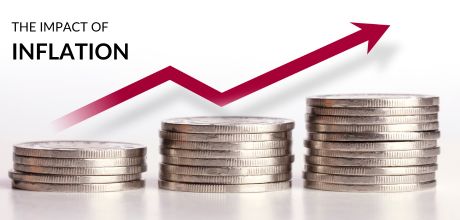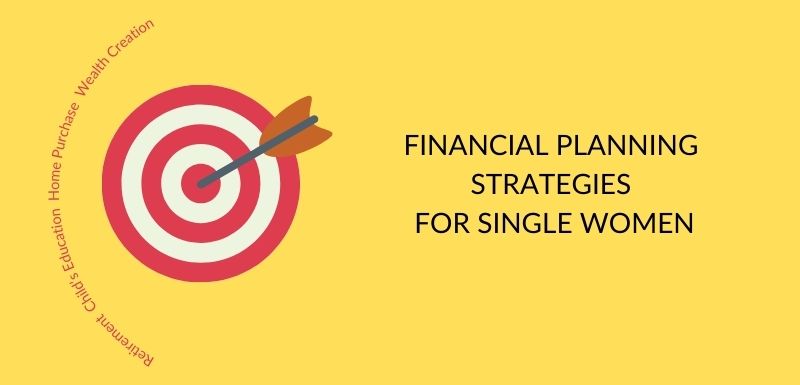How Can 50/30/20 Budgeting Help Allocate Money Towards Financial Goals

Most people understand the importance of financial planning and desire to invest towards their financial goals. However, some people are not able to do so because, by the end of the month, they are left with little or no money to invest.
Most people understand the importance of financial planning and desire to invest towards their financial goals. However, some people are not able to do so because, by the end of the month, they are left with little or no money to invest.
What Is the 50/30/20 Budgeting Method?
The 50/30/20 budgeting method allocates money towards needs, wants, and savings/investments as follows:
1) 50% Income Allocation Towards Needs
The budgeting method allocates 50% of the income towards needs essential for survival. Hence, they are non-negotiable. Some of the common needs include the following:
- Groceries and regular use household products
- School/college fees
- House rent or home loan EMI
- Utility bill payments
- Medical expenses
- Maintenance expenses for house, household appliances, vehicle repairs
- Transportation expenses for office commute
- Insurance premiums, etc.
2) 30% Income Allocation Towards Wants
The 30% income allocation is towards wants. In the earlier section, we saw how needs are for surviving. However, wants are for thriving and enjoying life. Some of the common wants include the following:
- Dining out or ordering food delivery
- Various forms of entertainment like watching movies, shows, sports, etc.
- Subscriptions to various apps
- Membership of a gym, club, yoga class, dance class, etc.
- Fashion and personal accessories
- Going for regular vacations
- Pursuing a hobby
- Buying the latest gadgets, electronics, consumer durables, etc.
3) 20% Income Allocation Towards Savings and Investments
The remaining 20% of income allocation is towards savings and investments. You can transfer this money to a separate savings account. From there, the funds can be used for investing towards various financial goals.
If you haven’t started your financial planning journey as yet, you can use the 20% money in the following manner.
1) Build and Maintain an Emergency Fund
An emergency fund is required to meet any unexpected or unplanned financial emergencies. These include job loss, salary delays, salary cuts, medical emergencies, etc. Ideally, the emergency fund should be equivalent to 3 to 6 months of your income.
The emergency fund money can be maintained in a savings bank account or a liquid fund. The idea is to have quick access to cash whenever the need arises.
2) Buy Term Insurance for the Family Bread Earner(s)
Once the emergency fund is taken care of, you can use the 20% income allocation towards buying a term insurance plan for the family bread earner(s). A term insurance plan is a financial backup for the family in your absence.
The term insurance cover amount should be adequate to cover your financial liabilities (loans like home loan, vehicle loan, personal loan, credit card outstanding, etc.) and financial responsibilities (child’s higher education and marriage, spouse’s retirement, family monthly expenses, etc.)
3) Buy Health Insurance for the Entire Family
The next step is to buy health insurance for the entire family. You can buy a family floater health insurance plan that can be shared by all family members. Purchase the plan from a company with a good hospital network, including hospitals in your area or preferred hospitals.
Make sure the cover amount is adequate. Look for features such as lower waiting periods, restoration benefit, AYUSH coverage, no or low co-payment, maternity coverage (if required), free health checkups, etc.
Please note that having an emergency fund, term insurance, and health insurance are all very important. Hence, you can either work on all of them together in parallel or take up any of them first as per your priorities.
4) Invest Towards Your Financial Goals
Once the emergency fund, term insurance and health insurance are taken care of, you can use the 20% income allocation for investing towards your financial goals. Some of the common financial goals include a child’s higher education, marriage, retirement fund, buying a house, home loan repayment, etc.
You can consult an investment expert and get a financial plan made for yourself. An investment expert can help you create a goal plan, recommend the financial products, invest towards the goals, regular review, and handholding till the goals are achieved.
5) Use the Tax Deductions While Investing Towards Your Financial Goals
In your financial planning journey, you will be investing in various financial products. You should ensure that you choose financial products that are tax-efficient. Some of these include the following.
- The emergency fund amount can be parked in a savings account. The interest earned on a savings account is eligible for deduction from taxable income under Section 80TTA. The maximum deduction allowed in a financial year is the interest amount or Rs. 10,000, whichever is lower.
- The premium paid towards a term insurance plan is eligible for deduction from taxable income under Section 80C. The maximum deduction allowed in a financial year is the premium paid or Rs. 1,50,000, whichever is lower.
- The premium paid towards a health insurance plan is eligible for deduction from taxable income under Section 80D. The maximum deduction allowed in a financial year is the premium paid or Rs. 25,000 (Rs. 50,000 for senior citizens), whichever is lower.
- The amount invested in some financial products towards financial goals is eligible for deduction from taxable income under Section 80C. These include investing in an Equity-linked savings scheme (ELSS) for equity investments and Employee Provident Fund (EPF), Public Provident Fund (PPF), National Savings Certificate (NSC), 5-year tax saving fixed deposit, etc., for debt investments. The maximum deduction allowed in a financial year is the amount invested or Rs. 1,50,000, whichever is lower.
6) Make a Will
While you work hard towards building various assets, you should ensure they can be passed on to the intended beneficiaries in a hassle-free manner. It can be done through a will. As you accumulate assets, you can add them in a will with details of the beneficiary/beneficiaries and how the assets should be distributed after your death.
Kickstart Your Financial Planning Journey With 50/30/20 Budgeting and Secure Your Future
Without proper budgeting, many people are clueless as to where they end up spending their monthly income. The 50/30/20 budgeting method helps you take control of your money and make appropriate allocations towards needs, wants, savings and investments. The budgeting method makes a 30% allocation towards wants, to enjoy life in the present. Also, it promotes financial discipline by making a 20% allocation towards savings and investments for your future financial goals.
The budgeting method helps balance your present lifestyle enjoyment with securing your future needs. Thus, 50/30/20 budgeting can help you kickstart your financial planning journey and secure your future along with enjoying the present.
Your Investing Experts
Relevant Articles
Why a Home Purchase Plan is Important – A Home Loan Checklist
Owning a home is more than just a milestone, it’s a financial journey that requires careful planning. A well-structured Home Purchase Plan helps you strategically manage your down payment, home loan, and repayment strategy, ensuring financial stability and peace of mind. With the right investment approach, including SIPs in Mutual Funds, you can efficiently accumulate funds, reduce interest burdens, and achieve debt-free homeownership faster.
The Impact of Inflation on Your Financial Goals
Inflation is the unknown devil that keeps devaluing your savings. We hear about inflation rates in the news, but it’s easy to overlook their significance. While we may notice rising prices in our day-to-day purchases, we often fail to consider how inflation impacts our long-term financial goals. In this article, we’ll uncover the true impact of inflation on your financial journey and share strategies to help you stay ahead of it.
Financial Planning for Single Women: Strategies for Long-Term Security
In today's world, not everyone prefers to get married and start a family. Some individuals, men as well as women, choose to stay single. They like to have a fulfilling career, focus on their passion like travel and go solo about it. In this article, we will understand how single women can do their financial planning and create long-term security for themselves.



